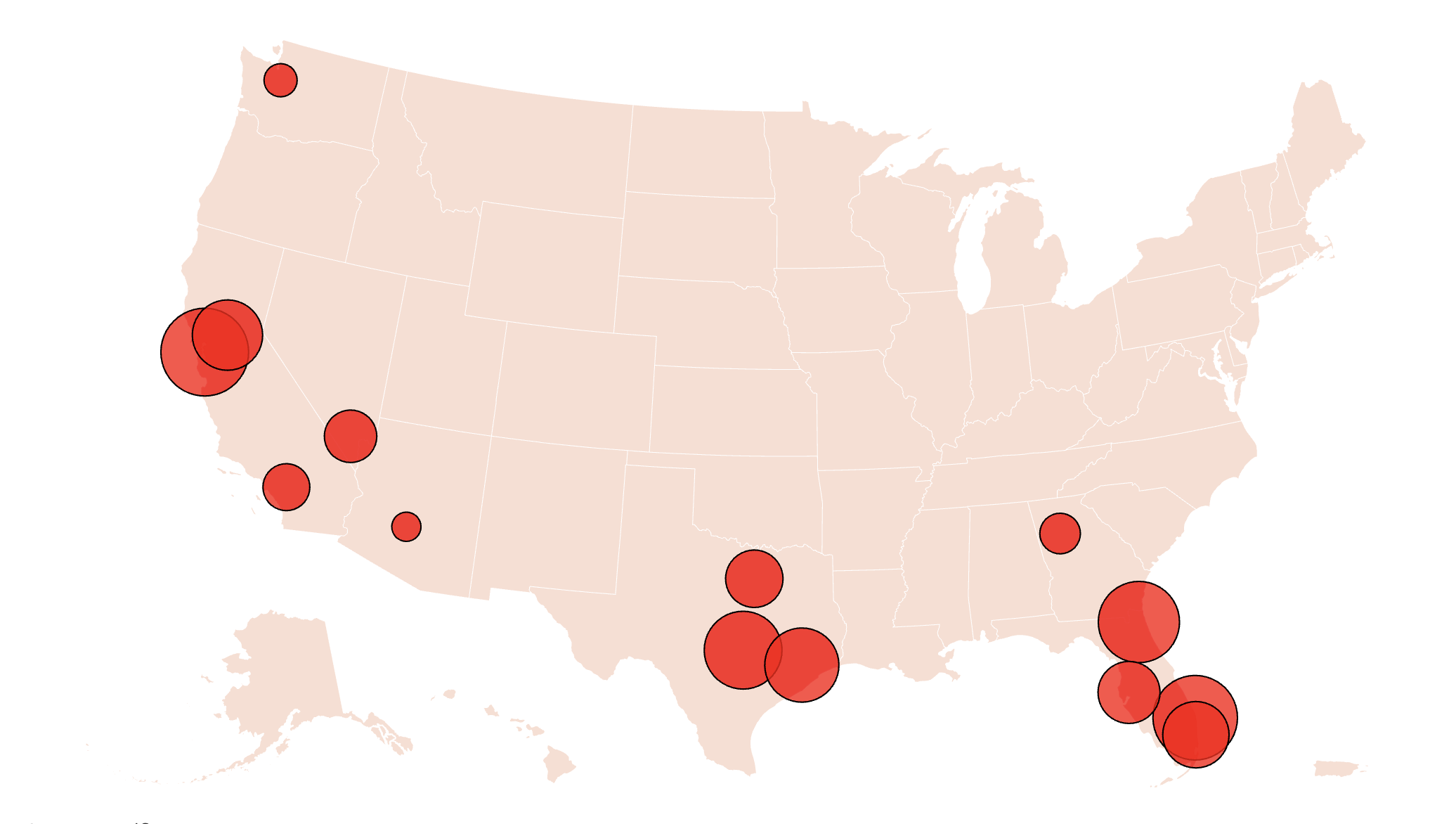
The U.S. housing market is starting to show signs of a significant shift in favor of buyers, as 14 out of 50 U.S. major metropolitan areas in the country reported annual price drops in the four weeks ending on July 27, according to Redfin data.
These declines come as inventory continues surging across the country, in part because sellers locked into their homes by lower monthly payments have stopped waiting for mortgage rates to come down, and in part because buyers just cannot afford a purchase right now.
As unsold for-sale homes pile up in the market, buyers now have more options available than they had for the past five years—and more negotiating power.
Where Have Home Prices Dropped?
While Florida and Texas cities are overrepresented in the list of the 14 U.S. metros which reported year-on-year price drops in the four weeks ending on July 27, the city that faced the steepest decline was Oakland, California, with a fall of 6.8 percent. Here, the median sale price of a home was $931,125 during the same time frame, according to Redfin.
The city was followed by Florida’s West Palm Beach and Jacksonville, which reported year-over-year drops of 4.9 percent and 3.1 percent, respectively, and Texas’ Austin and Houston, with annual declines of 2.9 percent and 2.8 percent, respectively.
The other metros that experienced drops were Sacramento, California; Fort Lauderdale, Florida; Tampa Florida; Fort Worth, Texas; Las Vegas; Riverside, California; Atlanta; Seattle, and Phoenix.
Why Are Prices Falling In These Cities?
What all these 14 metros have in common is that the supply of homes for sale in their markets now far outpaces demand, as affordability challenges continue hindering buyers who are being made even more wary by growing uncertainty over the economy.
Many of these cities, especially those in Florida and Texas, have seen not only an increase in listings of existing homes, but also a boom in new construction. While the entire country is still facing a huge imbalance between supply and demand and millions of people still wish to buy homes, many cannot afford to because of sky-high home prices, historically elevated mortgage rates, and rising housing costs, like home insurance premiums and property taxes.
As a result, many homes on the market are failing to sell or taking longer before going under contract. In West Palm Beach, for example, homes that went under contract during the four weeks ending on July 27 took 93 days to do so—the longest period of all the metros analyzed by Redfin, and 18 days longer than a year earlier.
Pending home sales were also down by 1.4 percent year-over-year in West Palm Beach, and supply is up 7.7 percent.
Many of these cities are also experiencing a dramatic correction now after years of overheating during the pandemic. Oakland, for example, saw a massive spike in home prices during the pandemic, when San Francisco residents moved to the Bay city looking for more affordable prices and a better quality of life.
But a combination of dwindling demand, rising crime, and new construction is forcing the city’s housing market to a painful rebalancing.
What About the Rest of the Country?
While these 14 metros reported a drop in prices in the four weeks ending on July 27, at the national level the median sale price of a typical U.S. home rose 2 percent from a year earlier, according to Redfin.
Prices were still rising even as pending home sales were down 1.4 percent from the year before and inventory was up by 8.9 percent. This is because, in some parts of the country like the Northeast, the shortage of homes remains acute.
But the price growth reported in the four weeks ending on July 27 was a lot smaller than that reported over the past year, at 5 or 6 percent, suggesting that the entire U.S. market is slowly shifting.
“Sellers need to start coming to terms with two things: one, homes are more often going to sit on the market for longer than a week or two before they sell, and two, buyers are gaining the upper hand,” said James Gulden, a Redfin Premier agent in Boston.
“I advise my sellers to be realistic about the price they’re going to get based on the market research I provide, while also taking into account which direction the market is moving, especially if they want multiple offers,” he added.
“I’m also reminding sellers to be patient and not panic. Sure, many homes have been selling within a week for the last several years, but that’s not historically normal. They have to reorient themselves to the fact that it may take several weeks, or more, before receiving an acceptable offer.”
Redfin
